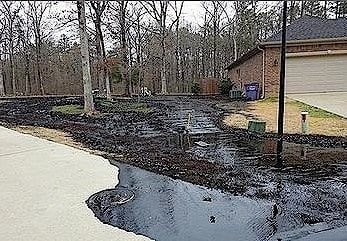The number of pipeline spills in Canada has doubled over the past decade. A CBC report on the embattled pipeline industry found that total safety-related incidents, including fires and spills, rose from one to two per 1,000 kilometres of federally regulated pipeline. The actual numbers, taken from data supplied by the National Energy Board (NEB), were 45 incidents in the year 2000 and 142 in 2011.
One reason for the increase is likely simple aging: some of the pipelines have been in the ground for decades, and many have more oil flowing through them than previously. The combination of age and increased pressure means more failures.

When spills alone are looked at, the increase is even more dramatic: reported spills have tripled over the last decade. All spills over 1,500 litres must be reported, and every gas leak. There were four reportable spills for every 10,000 kilometres in 2000, and thirteen per 10,000 kilometres in 2011. Most of the pipeline safety incidents occurred in British Columbia, followed by Alberta and Ontario.
The NEB, which oversees pipelines that cross international or provincial borders, and that includes approximately 71,000 kilometres of pipelines owned by 90 companies, attributes the increase in reported incidents to greater awareness among companies.
However some critics, especially opponents of major new pipelines like the Keystone XL, say that it doesn’t matter how sophisticated the pipeline companies become at building safety features into their lines, the lines will eventually fail, because they will not be maintained properly. A writer in Forbes magazine online cited the recent rupture of an Exxon pipeline in Arkansas, where 100,000 gallons of heavy (Canadian) crude poured into the streets of a neighbourhood whose residents didn’t even know it was there. The reason it leaked, the writer argues, is that it was old and had not been maintained, and its owners didn’t care. The penalties they have to pay when a spill occurs are simply out of proportion to their corporate profits, a mere cost of doing business.
For a different spill, Exxon was fined close to $2 million, an amount that is laughably inadequate, according to the Forbes writer, for an industry that earns $50 billion in annual profits and enjoys $20 billion in tax breaks.
The Canadian pipeline industry, meanwhile, represented by the Canadian Energy Pipelines Association, says that it is working hard to achieve zero incidents, through a combination of risk-based management and new technologies.

































